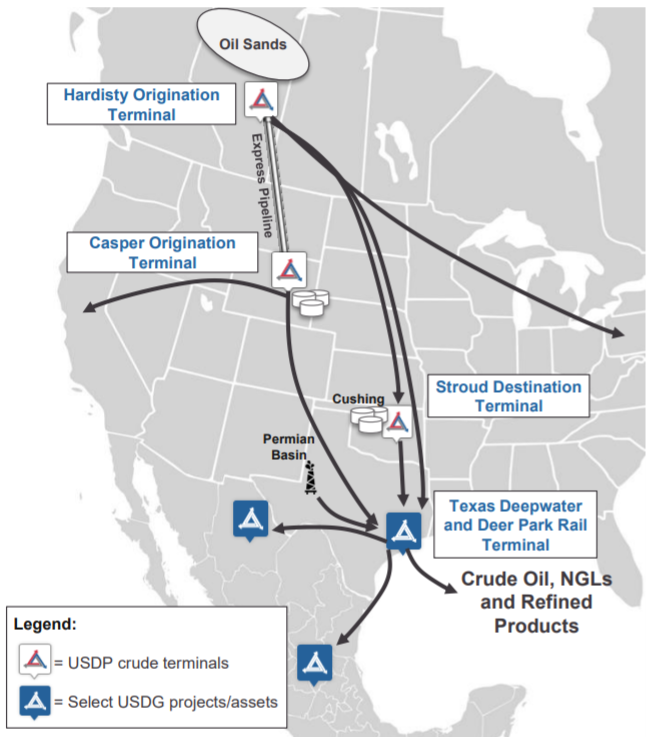
An announcement by Houston’s USD Partners LP on Wednesday regarding the firm’s railroad oil terminal at Stroud in northern Oklahoma suggests a possibility it could soon handle crude oil coming out of Utah’s Uinta Basin. It is only a possibility.
If so, it might add to the controversy in Colorado where several counties are fighting plans to allow rail shipments of the Utah oil across the state. It would also result in a large expansion of more crude oil being shipped to Oklahoma.
The oil would eventually be bound for the Cushing Hub terminal and other points that would lead to the Gulf Coast oil refineries. The Stroud terminal sits on 76 acres in Stroud and involves a 17-mile pipeline to the Cushing Hub. It has an unloading capacity of nearly 60,000 barrels a day and two onsite tanks that can hold up to 140,000 barrels of total capacity.

Right now, it provides Western Canadian heavy barrels with access to multiple large, liquid markets, including the Gulf Coast, while enabling greater quality control relative to pipelines.
But if the company’s new third-party contract works out and Uinta Basin oil is shipped to Stroud, it would result in another avenue of oil and revenue for USD Partners LP.
Colorado leaders oppose the proposed 80 miles of train tracks in their state because it would carry the Eastern Utah oil to train tracks connecting oil production to the nation’s rail network. The Unita Basin Railway project, as it is called, won approval from the U.S Surface Transportation Board and the U.S. Department of Agriculture.
But it is opposed by Colorado U.S. Sen. Michael Bennett and Congressman Joe Neguse. They believe it would put the Colorado River at risk since the railway runs adjacent to the river that winds through the canyons and mountains of western Colorado.

The oil coming out of the Uinta Basin is unlike liquid crude carried by other rail cars in Oklahoma.
It is high in paraffin wax content and turns to a solid state below 110 degrees Fahrenheit, according to Keith Heaton, director of the Seven County Infrastructure Coalition in Utah that’s advocating for the rail reported Colorado Public Radio in April.
The oil is transported as a solid and not a flammable or hazardous liquid. Still, Colorado officials oppose the planned railway. It certainly would result in a large increase of crude oil transported across the state and as the Salt Lake Tribune reported this week, it would rank among the largest sustained efforts to transport crude oil by rail ever undertaken in the U.S.
Click here for Salt Lake Tribune





